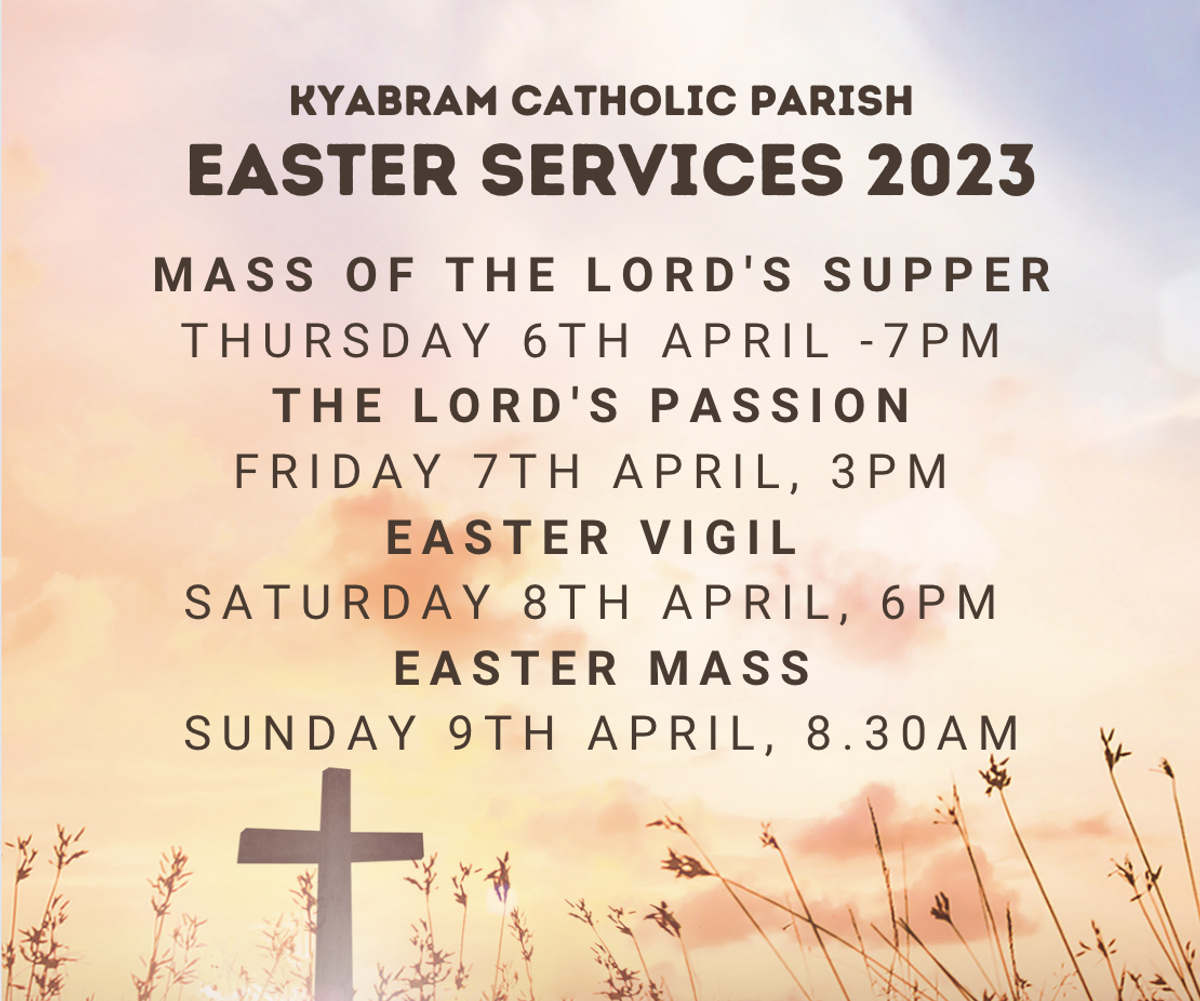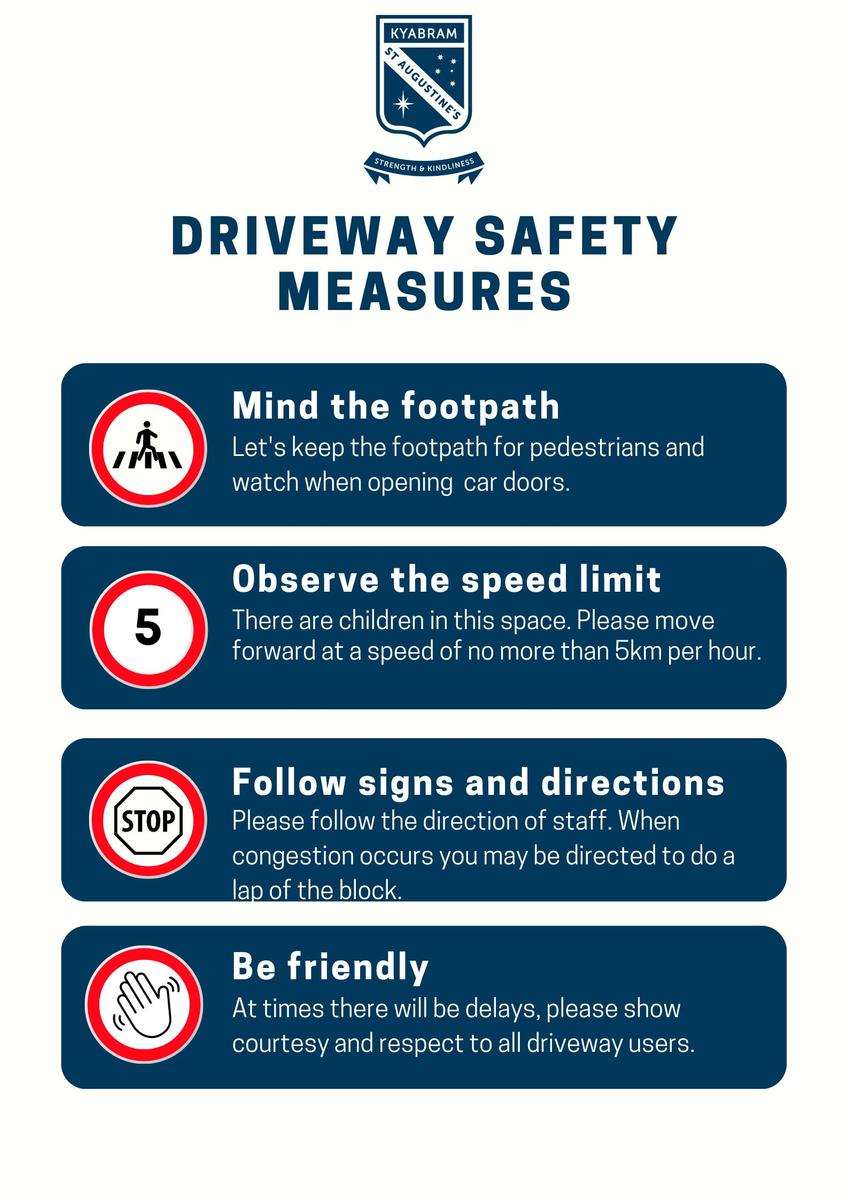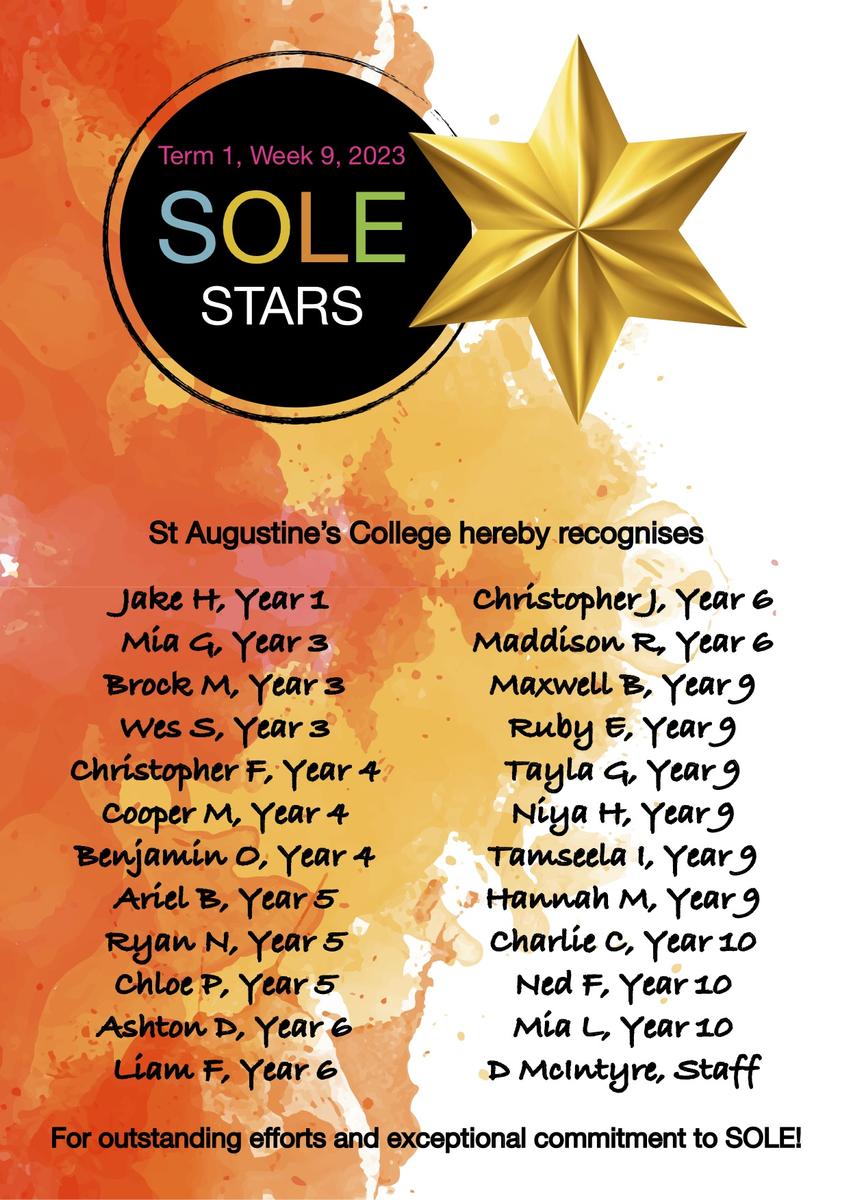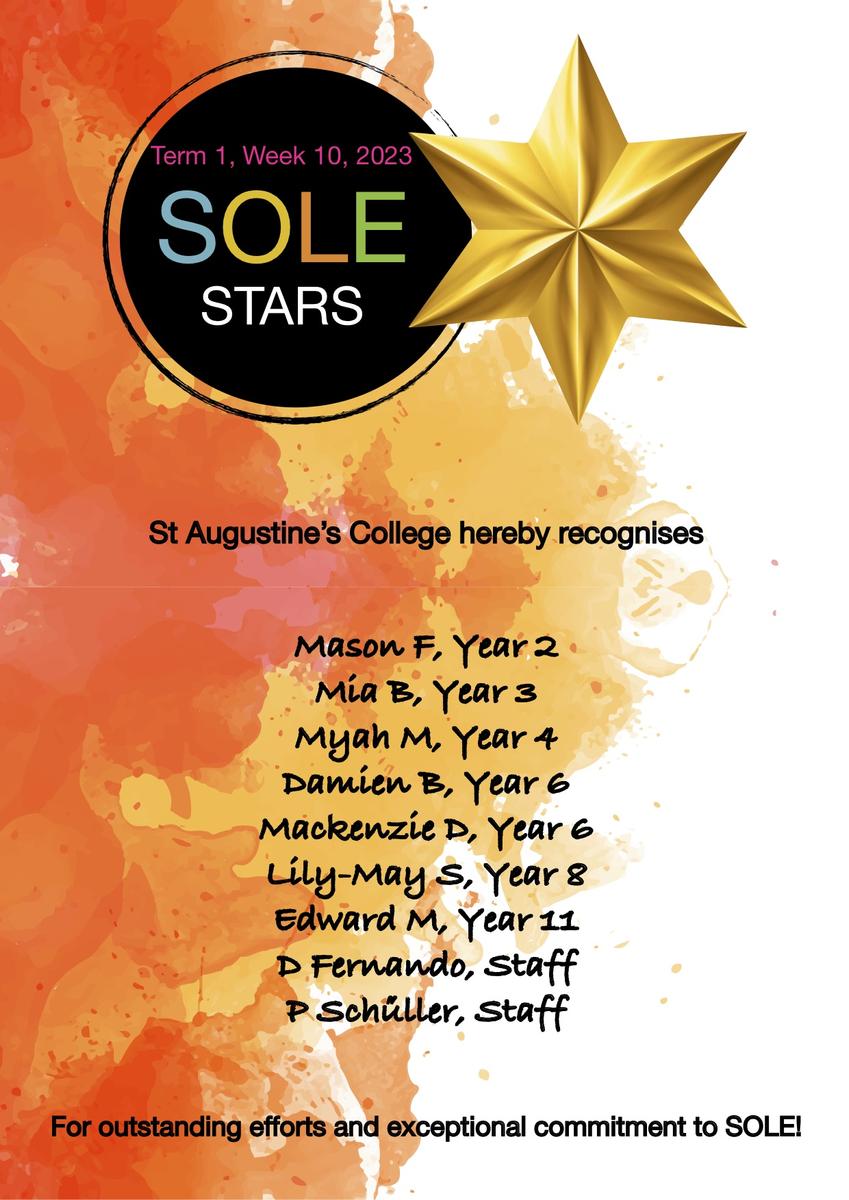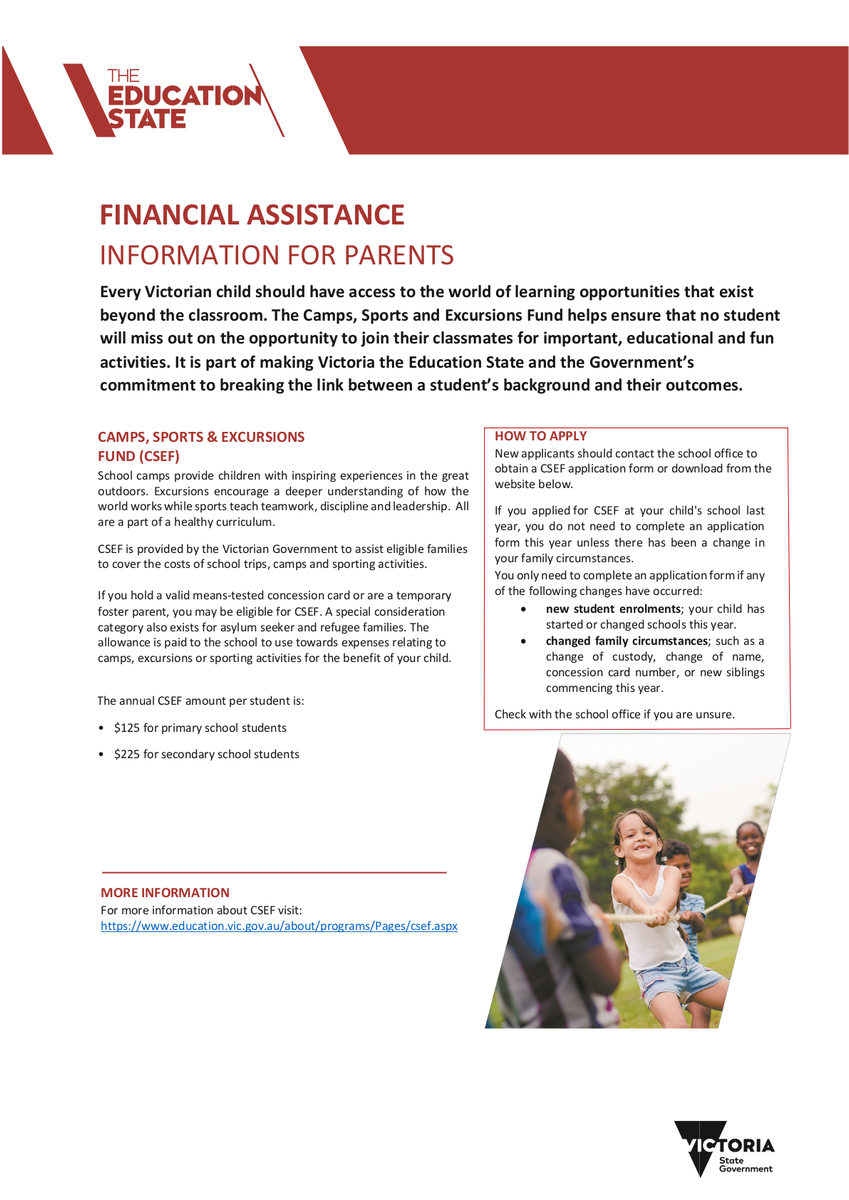College News

Finish Time - Last Day of Term 1
A reminder that Term 1 finishes today, Thursday 6th April, at 2.00pm.
Term 2 Commencement
All students will commence Term 2 on Wednesday 26th April.
Please note that Monday 24th April is a Student Free Day and Tuesday 25th April is a public holiday for Anzac Day.
St Augustine's Parish Easter Timetable
Holy Thursday – 6th April at 7.00pm
Ecumenical Combined Churches Service at Kyabram Memorial Gardens - Friday 7th April at 10.00am
Good Friday - 7th April at 3.00pm
Easter Vigil - 8th April at 6.00pm
Easter Sunday - 9th April at 8.30am
Divine Mercy Sunday - 16th April at 8.30am followed by Devotions
Mothers Day Liturgy
Our F-4 Mothers Day Liturgy will be held on Wednesday 10th May at 9.15am in the Church. All parents and caregivers are very welcome to join us in this celebration.
NDIS Providers - In-school Delivery of Support
In the last twelve months we have seen an increase in requests for approval of NDIS-funded support delivered in schools.
As a result of this, we have reviewed our NDIS policy and have made a few changes. If agreed, the NDIS Providers need to:
- meet all legal and policy requirements
- sign and return a Therapist Information Request form
- enter into a Clinical Access Agreement with the school
- undergo an induction at the school prior to commencing services
- ensure the provided service is delivered in accordance with the school’s visitor/contractor arrangements
Decision Considerations
When managing requests, several factors need to be considered:
- Is this in the best interest of the student who is receiving the service?
- How will this impact other students in the school?
- How will this impact the operational requirements of the school?
A request for access must come from the student’s parent or carer. There will be a consent form that needs to be signed and returned before sessions can commence.
Considerations and access details must be documented to ensure all parties are clear about their responsibilities. Providers do not have an automatic right of access, even if delivering a service to another student at the school.
Decisions are made on a case-by-case basis.
If the College believes that services being delivered are no longer in the student’s educational interest, we may withdraw provider access.
Further information can be obtained from our Diverse Learning Coordinator, Mrs Leanne Reid at leannereid@sakyabram.vic.edu.au
Nationally Consistent Collection of Data (NCCD) On School Students with Disability
What is the Nationally Consistent Collection of Data?
Schools must now complete the Nationally Consistent Collection of Data on School Students with Disability (NCCD) every year. It counts the number of students who receive additional adjustments or “help” at school because of a disability. The NCCD helps governments plan for the needs of students with disability.
Who is counted in the data collection?
To count a student in the NCCD, schools must think through some key questions:
1. Is the student getting help at school so that they can take part in education on the same basis as other students?
2. Is the help given because of a disability? The word ‘disability’ comes from the Disability Discrimination Act 1992 (DDA) and it can include many students.
3. Has the school talked to you or your child about the help that they provide?
4. Has the school kept records about the help they provide, the student needs and the reasons that the student needs this help? The school will need to keep copies of tests, student work, assessments, records of meetings, medical reports or other paperwork and information about how the student’s learning is moving along over time.
Once the school decides that the student should be counted in the NCCD, they then choose a disability group and one of four levels of help that has been given to the student.
What does the word ‘disability’ mean in the NCCD?
In the NCCD the word ‘disability’ comes from the Disability Discrimination Act 1992 (DDA). There are four types of disability that the school can choose from: sensory, cognitive, social-emotional and physical.
Many students that need help at school can be counted in the NCCD. For example, students with learning problems, e.g. specific learning disability or reading difficulty (sometimes called dyslexia), health problems (e.g. epilepsy or diabetes), physical disability (e.g. cerebral palsy), vision/hearing loss and social-emotional problems (e.g. selective mutism, Autism Spectrum Disorder, anxiety).
Letters from doctors or specialists can be very helpful for schools as they plan how to support students with their learning. Schools do not need to have these letters before they can count a student in NCCD. Teachers can use all that they know about the student’s learning and the records that they have collected over time to decide if a student can be counted in the NCCD.
What sort of help does the school give students?
Students need different types of help at school. Some students need a little help sometimes while other students need a lot of help nearly all the time. The type of help given depends on the needs of the student. The help can include changes to the school buildings or grounds (e.g. ramps or things like special desks or chairs), extra teacher help in classes, special learning programs, changes to the work they give the student or extra adult help.
How will the NCCD be different this year?
All schools have been counting students in the NCCD since 2015. The government will use the NCCD data as part of the funding to schools.
What will the school need to know about my child for the NCCD? Schools work together with families to understand the needs of each child. It is helpful if families give their child’s teacher a copy of any letters or reports they have. The letters or reports will help the school understand the child and the help that they might need. Letters from doctors, psychologists, speech pathologists, doctor and occupational therapists etc. can be very helpful for schools. These reports along with information that the teacher has (i.e. school based tests, your child’s work and learning plans) helps the school to understand and meet your child’s needs.
What happens to the NCCD data? Who will have the NCCD information? Each school principal must check the NCCD data in August of each year. The school will give the information to the Catholic Education Office. The school will work with the Catholic Education Office to make sure that the NCCD data is OK before they give the data to the government. The government will not be given the names of any students or any letters or records. Please ask your school for their privacy policy if you need to know more.
Does the school need me to agree with them about counting my child in the NCCD?
Amendments were made to the Australian Education Act 2013 and Australian Education Regulation 2013). Schools do not need you to agree to let them count a child in the NCCD. You cannot ask the school not to count your child.
Where can I find out more?
Please contact your child’s school if you have further questions about the NCCD and/or refer to the national NCCD Portal.
Andrew Chinn Concert
Andrew Chinn, creator of Butterfly Music, is coming to visit St Augustine's on Thursday 18th May. Andrew is an Australian religious songwriter and singer. We look forward to him visiting our school again to share his songs with our students.
Some of Andrew’s songs include 'These Hands', 'Rainbow', 'An African Blessing' and 'Rise Up!' These are regularly used in classrooms and liturgies around Australia, New Zealand, USA and Canada.
All students from Foundation to Year 6 will be involved in workshops and an afternoon concert. Our school is very excited to welcome Andrew back to help our students develop their musical skills and knowledge.
Parents and caregivers are very welcome to attend the concert at 2pm in the Brigidine Centre.
Driveway Safety
SOLE Stars
Congratulations to our final SOLE Stars for Term 1.
Week 9
Week 10
Volunteer Opportunities for Families
Wonder Women's Breakfast helpers needed - Calling all dads and special men!
Our Wonder Women's Breakfast will be held on Wednesday 10th May, prior to Mother's Day. We have lots of mums cook the Father's Day Breakfast later each year. We need some dad's and special men to help us prepare the Mother's Day Breakfast!
Helpers will need to complete a Volunteer Induction Process which takes approx (45mins) prior to the day (details can be found below).
Please contact Nicole Elliott, our Volunteer Administrator to register your interest today! nicoleelliott@sakyabram.vic.edu.au or Ph: 5851 3002.
Our next Volunteer Induction Session is on Monday 8th May
Are you interested in volunteering at our College?
We value partnering with parents, caregivers and friends of our College to support our learners and College events to come to life.
If you think you would like to assist students reading before school, helping out (or even co-ordinating!) our Mother's Day and Father's Day Stalls and Beaut Blokes Breakfast or are open to jumping on a rake at the Athletics Day, then please come along to one of our Volunteer Induction Sessions!
Sessions run for approximately 45 minutes and are designed for new volunteers to our College. Our next session is on:
- Monday 8th May 2023 at 9.00am
Please contact Nicole Elliott on 5851 3002 to indicate your attendance or to find out more.

